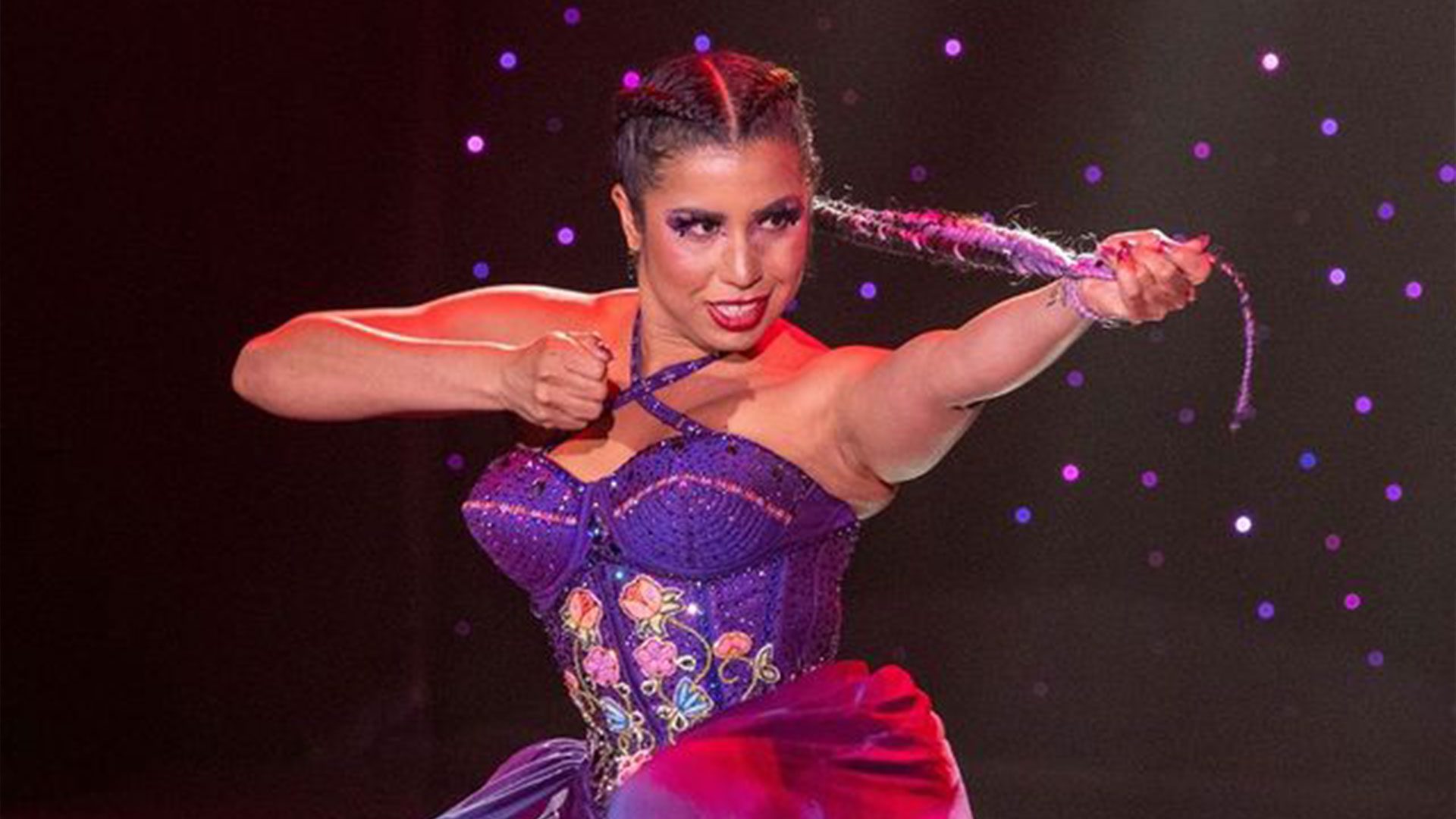Mohawk burlesque dancer Lou Lou la Duchesse de Riere, also known as Lauren Jiles, was voted the second most influential burlesque figure of 2022 in the world in 21st Century Burlesque Magazine.
“To be voted by my community members as an influential figure is also very, very surreal and really cool,” said Jiles. “It was a very fruitful, amazing year, like a really amazing year as an artist, and it just made me feel like I’ve been doing the right thing and that I’m on the right track.”
Originally from Kahnawake, a Mohawk community just outside Montreal, Jiles has been a fixture of the Montreal burlesque scene for more than 17 years.
Burlesque is often called the “art of slowly taking your clothes off,” but it’s much more than that, said Jiles.
“It can be really easy to say ‘Well, this is very demeaning,’ or you know ‘It’s sexualizing yourself’,” she said. “I think burlesque is very empowering, it’s always been a really awesome means of expression for myself and for other people, and I think it’s the complete opposite.
“I always joke about it being satirical sexual pageantry, definitely gender performance, it infuses comedy, sometimes circus, dance from different backgrounds, it can be like anything.”
In June 2022, she competed in the world’s biggest burlesque competition – the Burlesque Hall of Fame (BHOF) Weekender in Las Vegas – with a slightly unconventional piece, even by burlesque’s standards, entitled Peace, Power and Righteousness.
“It is a piece that is centered around this idea of decolonizing sexuality and reclaiming my body as an Indigenous woman, it’s very, a lot of the dance is very violent, or has violent imagery it’s very sexual, it’s really political, and I was really surprised when they were like we want this to compete.”
To Jiles’ surprise, that piece won the competition, and she was named Miss Exotic World 2022.
“When I won, I was just like I can’t believe that. Like it’s the whole world recognizing this piece as the best in the week,” she said. “It meant a lot to me, and to have conversations that week with other Indigenous performers that were there during the week and to see how much that piece resonated with them adds a whole other level to it.”

The BHOF Weekender 2022 also featured a land acknowledgment for the first time – something Jiles helped work on. She and the other indigenous artists added a call out for donations for different community organizations.
“It’s not just about saying like ‘Well this is the territory that we’re on’, it’s about maybe reaching out to institutions and organizations that are in our territories and seeing how we can make legitimate connections with the Indigenous people that occupy the land and give back.”
As an Afro-Indigenous performer, Jiles says burlesque has not always been racially sensitive.
“The resurgence of burlesque in the late ‘90s, early 2000s, it was definitely chasing that 1950s, 1960s retro aesthetic, and unfortunately you would have things like tiki shows and geisha acts and Pocahontas princess-type acts,” she said.
While performers of colour, like Josephine Baker, Mei Ling, and Jean Idelle, have been at the forefront of burlesque as an art form since its inception, Jiles said the biggest shift has happened in the burlesque community’s attitude in the past decade.
“When you enter into an art sphere and specifically burlesque, we have a lot of conversations about exoticism is bad, cultural appropriation is bad,” she said. “Unfortunately these acts still do appear, so often we have people getting called in for this kind of stuff that unfortunately involves a lot of emotional labour, often from BIPOC performers, but I would say that people are more receptive to have these conversations.
“I think it is difficult to misstep and have to be called in or called out for whatever misstep that you take, but I do see people stepping up and apologizing, taking accountability for what they’re doing and really trying to shift and educate themselves.”
Jiles said she and fellow BIPOC performers have built themselves from the ground up.
“It was very DIY, hot glue, and sequin tape, and it was really really punk rock, and I love that about burlesque,” she said. “When I started, there weren’t a lot of means for education, so we were really, really grassroots.
“Like you just got onstage, you figure things out, trial and error, this worked, this didn’t work.”
Now, with a strong community and the accessibility of burlesque through social media, the number of prominent BIPOC performers is growing, said Jiles – especially in her home base of Montreal.
“The amount of BIPOC talent in this community is just like off the chains, and they are now taking the stage on the world stage. They’re doing competitions, like Miami Minx, Joy Rider, Foxy Lexxi, Zyra Lee Vanity, these are all amazing performers.”
Jiles is shifting her attention away from competing to mentoring up-and-coming performers and producing.
“I’m kind of entering my auntie stage in the community,” she laughs.
But she won’t stop performing anytime soon.









